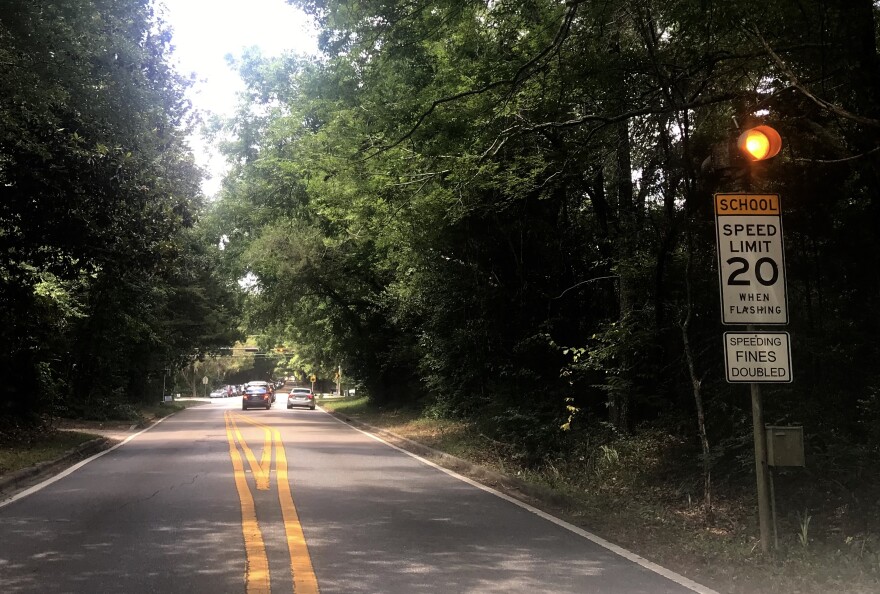The League of Women Voters of Florida is out with a report casting the state’s largest tax credit scholarship agency as a "money management/marketing firm operating as a charity.” The League is also blasting a legislative effort to consolidate Florida’s multiple school choice programs.
The voting rights organization says a plan to transition the programs into education savings accounts is a bad idea, while Step Up for Students says the league’s claims are based on misleading, and outdated information.
“The League is very concerned about the expansion of the voucher program with no accountability, no standards and no transparency. Basically, what the legislature has been doing over the past 20 years is to create a parallel school system without little oversight from the public," said League of Women Voters, Tallahassee Chapter President Sally Butzin. She sits on the League's education committee and authored its report on Step Up For Students.
The state allows business to donate money to private organizations who give scholarships to families that want to send their kids to private schools or home school. In its report, the League takes issue with the size of SUFS—the largest scholarship funding organization in the state and among the biggest charities in the United States, according to Forbes Magazine. The organization has grown so large due to Florida lawmakers raising the amount of money that businesses can donate—a cap that goes up each year. Butzin argues that’s money that should be going into state coffers instead.
“They manage the money, the scholarships, they take a fee for their services. It’s just quite a gigantic organization that’s behind the scenes of the expansion of the Florida voucher program which is using public funds to fund private schools and other private enterprises.”
Florida law caps the organization’s administrative fee at 3%.
The constitutionality of voucher programs has also been litigated in state courts before, with judges upholding them. One of the state’s longest-running lawsuits alleged the programs amounted to the state funding two separate systems of education. The Florida Supreme Court dismissed that one in 2019. Other rulings have noted there is no guarantee the legislature would use that money on education should it go into state coffers. School choice backers say scholarships enable parents to make the ultimate decision on how to educate their child. Butzin worries the legislature’s latest effort to consolidate the state’s school programs and expand eligibility will further exacerbate differences between public and private schools.
“We certainly think parents should have a big role in their child’s education but they need more information to make informed decisions. The parents really don’t know all the details of what’s going on. And what you find is, when you look at how some parents get their kids in one of these religious private schools and then discover its not what they wanted and try to get their kids released and have trouble getting the records—so there’s some stories that really are troubling.”
The league’s report criticizes Step Up for a 2019 audit that had several findings for the group including whether it was properly monitoring how the scholarships are being used and who gets them. An audit released in March effectively gave the organization a clean bill of health. The Senate version of the voucher merger bill would move auditing of scholarship funding organizations to every three years.
Step Up For Students has issued a statement on the League’s report saying it’s “thin on substance and thick on innuendo.” The organization says it has "offered in the past to meet with the League (and other opponents of education choice) to engage in thoughtful dialogue about the complicated issues facing public education in Florida, but the League has never accepted our invitations. Those offers stand."
The League’s Butzin says she wants to see more scrutiny around the legislative relationships between scholarship organizations like Step Up and lawmakers.
“We hope that the public starts to ask questions…and what are the political connections? There’s a lot of cross pollination between the people who serve on the step up board and the politicians, especially Senator Diaz," she said.
The Senate bill sponsor, Manny Diaz, has ties to the charter school operator, Academia. Step Up says the voucher merger bill came at the request of Senate President Wilton Simpson and that the organization has provided answers to senate questions.





